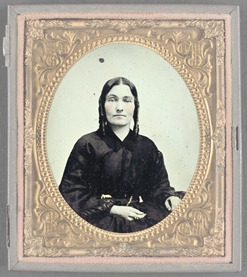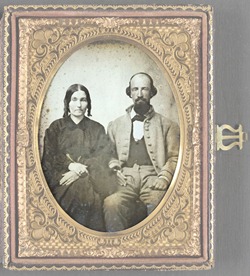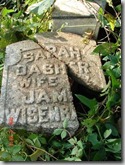October 9.—The time allowed by Commander Renshaw, of the Union fleet at Galveston, Texas, for the surrender of that city having expired, the Commander proceeded to the city with a portion of the fleet, took possession, and hoisted the Union flag upon the Custom-House, without opposition, the rebels having previously abandoned the city.—Galveston Union, October 10.
—A fight took place in the vicinity of Lawrenceburgh, Ky., between a Union force of three thousand men, under the command of Col. E. A. Parrott, First Ohio volunteers, and the rebel forces under Gen. E. Kirby Smith, resulting, after an engagement of five hours, in the retreat of the latter with considerable loss. The Nationals had six men killed and eight wounded.—(Doc. 216.)
—This morning a small body of Gen. Sigel’s cavalry captured in Aldie, Va., over forty rebel prisoners, several loads of bacon, and an ambulance. The prisoners were paroled.—The Ericsson iron-clad battery, Montauk, was launched from the Continental Works at Greenpoint, L. I.
—In West-Virginia the rebels enforced the conscription act wherever they had the power. In the Kanawha Valley every able-bodied man that could be found was seized and carried to the rebel camp.— Wheeling Intelligencer.
—The Union gunboat Darlington, which left Jacksonville, Fla., on the sixth, on an expedition up St John’s River, returned this day, bringing the rebel steamer Governor Milton, which it had captured two hundred miles up the river.
—A slight skirmish took place near Aldie, Va., between a small party of Union troops and a numerically superior force of rebels, resulting in the retreat of the Nationals without loss.
The rebels had one man killed, Lieut. Mears. —An expedition consisting of about one thousand five hundred cavalry, supported by a battery of artillery, under the command of Colonel Davies, left camp at Upton’s Hill, Va., on the sixth instant, for the purpose of capturing or destroying five or six locomotives on the Orange and Alexandria Railway at Rappahannock Station. It was discovered that the locomotives had been removed to the other side of the Rappahannock River, and the expedition returned to-day to Centreville.













 Title: Unidentified soldier in Confederate uniform and his wife, Sarah A. Dasher
Title: Unidentified soldier in Confederate uniform and his wife, Sarah A. Dasher
